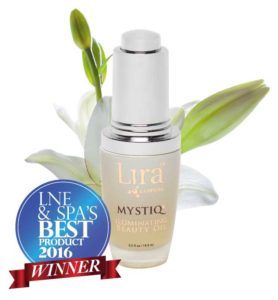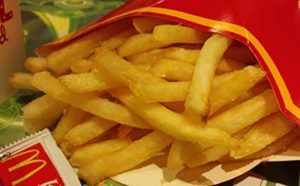The Lesser Babka and Age Management
- By J.Maxine MacGwyre, LMA, Nutrition Specialist
- •
- 16 May, 2019
- •

So, I hear you asking, what does babka have to do with skincare? To make the point, that all skincare products are NOT created equally. There are a mind-numbing number of options available on the market today so how does one make the best decision?
When it comes to Age Management, there are a few key elements that separate the men from the boys resulting in an active and corrective, results based skincare program…
Cell Turnover/Stimulation
As we age our skin cells renew at a slower pace, and don’t replenish as quickly as they did prior to age 30, which is when we have peak skin health. Did you know that when we are in our 20s we get a new face every month thanks to the amazing miracle of cell turnover??!! Skincare products and treatments that trick the skin into turning over more quickly are what its all about in the anti-aging game.
Skin Brightening
As our melanocytes, the cells in our epidermis responsible for our natural pigment as well as manufacturing protective pigment, become unevenly distributed with age. Our skin thins, damage from previous decades becomes more visible and is more difficult to correct. Tyrosinase inhibitors are a key factor in age management to lighten pigment and assist to prevent additional pigment from forming. Some skincare professionals, ok, I’ll say it…the smart ones, require clients use inhibitors before advanced treatments to ensure the skin is treatment ready; to minimize the chance for post treatment complications.
Loss of dermal collagen and fatty tissue
Dermal density decreases as we age due to loss of collagen and fatty tissue in the skin. The key to keeping a healthy dermis is fibroblast, cells that produce collagen and elastin, stimulation with non-inflammatory ingredients such as peptides, alpha hydroxy acids such as Lactic Acid, and retinol aka Vitamin A.
Exfoliation
Light exfoliation helps aging skin by reducing buildup of dead corneocytes aka “cornflakes”, excessive oil, and refining pores. Gentle exfoliation on a weekly basis, as well as professional exfoliation can also stimulate collagen production and increase cell turnover. There are many forms of exfoliation for home care and the treatment room, but all can be categorized as chemical or physical.
Anti-oxidant Support
Free radical damage can disrupt the skin all the way to the cellular level, having a skincare program and diet filled with anti-oxidants will help reduce the oxidative stress and damage created by free radicals.
Hydration
Aging leads to a loss of lipids (fats) produced naturally in the skin, keeping the skin hydrated will promote health and vitality throughout all ages of your skins’ life cycle. The human body needs both oil (essential fatty acids) and water to maintain internal hydration while the skin primarily requires lipids for hydration since cell membranes require a fat driver to get nutrition into the cell. Lipids which most closely mimic the natural sebum that hydrates the skin, are most effective, larger molecule fats, tend to sit on top of the skin as they lack the ability to penetrate.

SPF
Continued, daily protection from UV damage and photo-aging is necessary at all stages of life. A healthy SPF will contain Zinc Oxide to provide a 30 rating which is the gold standard for protection.
What’s in your wallet? Is it live or Memorex? What’s the real deal?
When it comes to skincare, products sold through non-professional locations (Over the counter aka OTC) are generally very mild, and only address a few of the age management strategies, creating minimal results at best. Many organic lines do a great job when it comes to hydration and anti-oxidant support, while only minimally addressing the other areas of concern. OTC and professional products are categorized and defined by the FDA. OTC products are minimally active and corrective to protect consumers selecting skincare products outside the guidance of a trained professional.

It’s not always about what’s NOT in a product but what is IN the product. Gluten free has been receiving an enormous amount of attention and I agree that gluten and GMOs should be avoided as it relates to diet. Gluten, used as a thickener, is not a super common ingredient in skincare so it is not a huge deal to state that a product is Gluten Free. And to add another wrinkle (pardon the pun), just because a product is Gluten Free, doesn’t mean that it is Wheat Free. Gluten is a protein and wheat contain many proteins, so a skincare product could contain wheat germ and can accurately state that it is gluten free. Keep in mind that just because McDonald’s fries are Gluten Free, they are still not good for you.
Professional grade products are formulated to penetrate deeper, with higher concentrations of active ingredients. My go-to product line for both backbar and home care is Lira Clinical for many reasons but primarily because it’s taken skincare a step further with smart, multi-functional products that allow you to brighten, hydrate, protect, stimulate, and repair all in one comprehensive, customizable skincare program. Lira Clinical incorporates the best of science and the best of nature to correct, protect and maintain skin health. By purchasing your Lira Clinical through an authorized skincare professional, such a moi, you ensure that you are using exactly the right products for the highest quality results.
Why would you settle for the lesser babka?




